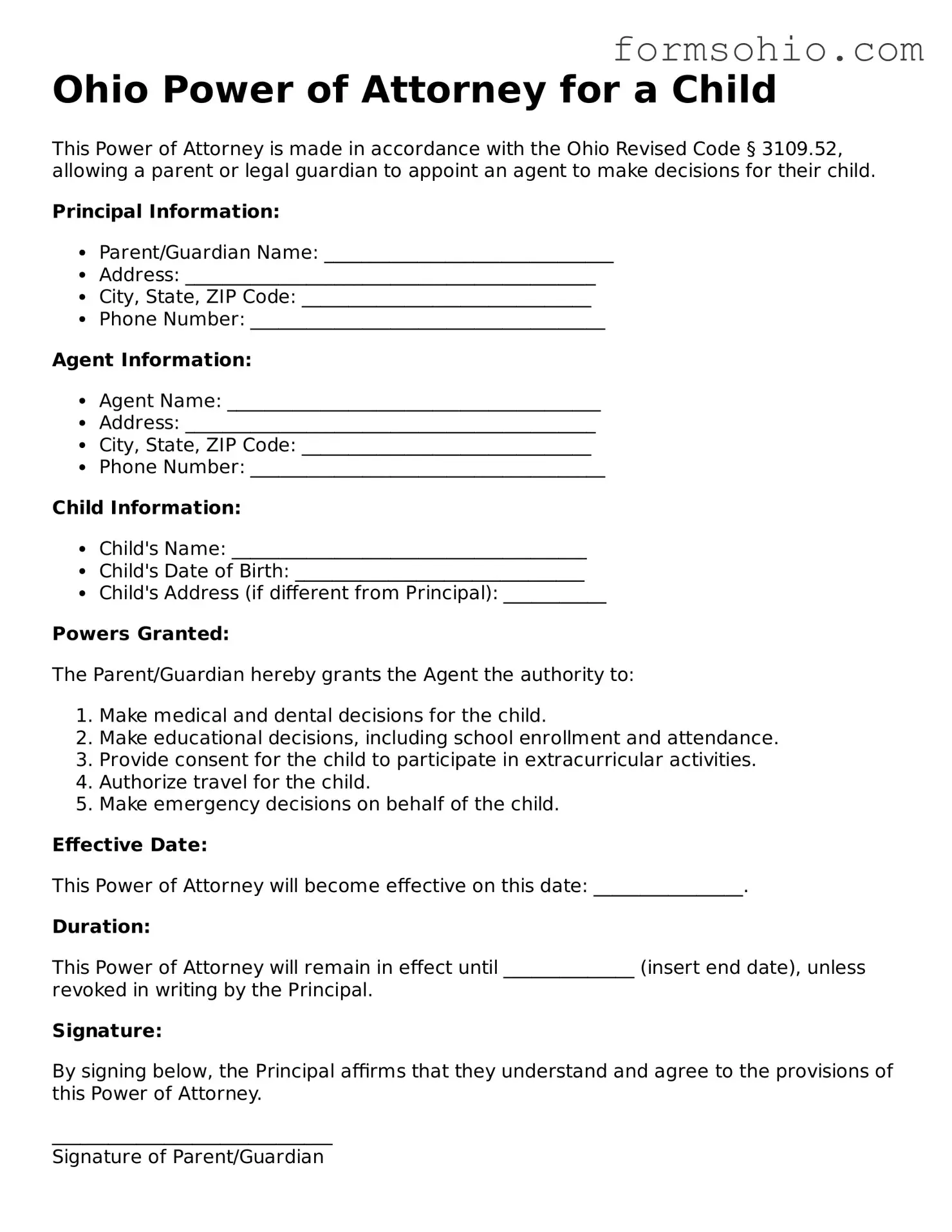Printable Power of Attorney for a Child Template for the State of Ohio
The Ohio Power of Attorney for a Child form is a legal document that allows a parent or guardian to grant another adult the authority to make decisions on behalf of their child. This form is essential for ensuring that a trusted individual can manage a child's welfare in the absence of the parent or guardian. Understanding how to properly complete and use this form can provide peace of mind for families navigating various circumstances.
Get This Document Online

Printable Power of Attorney for a Child Template for the State of Ohio
Get This Document Online
Complete this form efficiently and quickly
Complete Power of Attorney for a Child online without printing hassles.
Get This Document Online
or
Free PDF File
